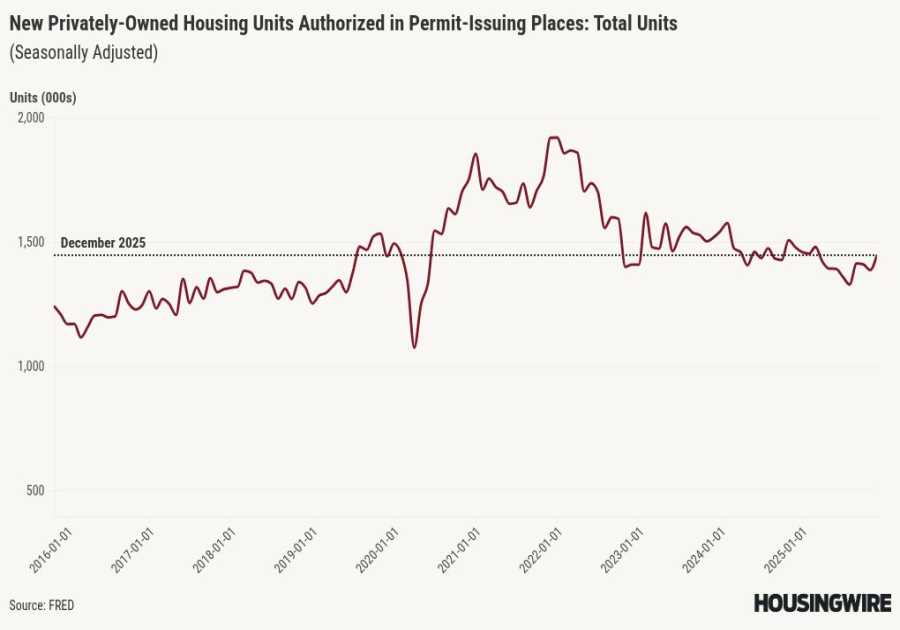Courtesy of @MotherNATEur.
- A van-lifer who goes by Nate left behind a $3,000-a-month Washington, DC, apartment in 2020.
- It's not that much cheaper, but she's saved $70,000 since. The travel, though, can be liberating.
- She described the joys of living in a van — and its less romantic sides, like showering at the gym.
This as-told-to essay is based on a conversation with a 38-year-old personal assistant about going from a traditional apartment to living in a van. She asked to go only by Nate, though Insider has verified her identity. Her username is @MotherNATEur on Instagram and TikTok, where she posts about her experiences on the road and shares tips. The article has been edited for length and clarity.
I have always wanted to wander around and roam, but I didn't know how that was possible. Everything I knew were traditional housing situations.
I call myself a "professional housewife." I work with very wealthy and high-profile clients. My job is to basically take care of anything they need domestically, like cooking, organizing, cleaning, and running errands.
I was on YouTube and just happened to see a video titled "Solo Female Van Tour." At first, I thought it was a woman who was giving concerts in her van and was on tour. I was completely wrong.
The woman instead gave a tour of her van and talked about how she travels wherever she wants because her home is with her. I was like, "That's it!"
The next day — March 13, 2020 — I broke my lease and I moved out of my two-bedroom, two-bathroom apartment in Washington, DC.
It's exciting not knowing where I will be next
In 2021, I purchased a 2000 Ford E250 for $5,000 that is my permanent residence.
I'm not a full-time traveler. Instead, I consider myself a van-lifer.
For the first couple of weeks of living in my van, I would park in front of the high-rise apartment complex that I used to live in. It still felt like home, and I did not know where else to go.
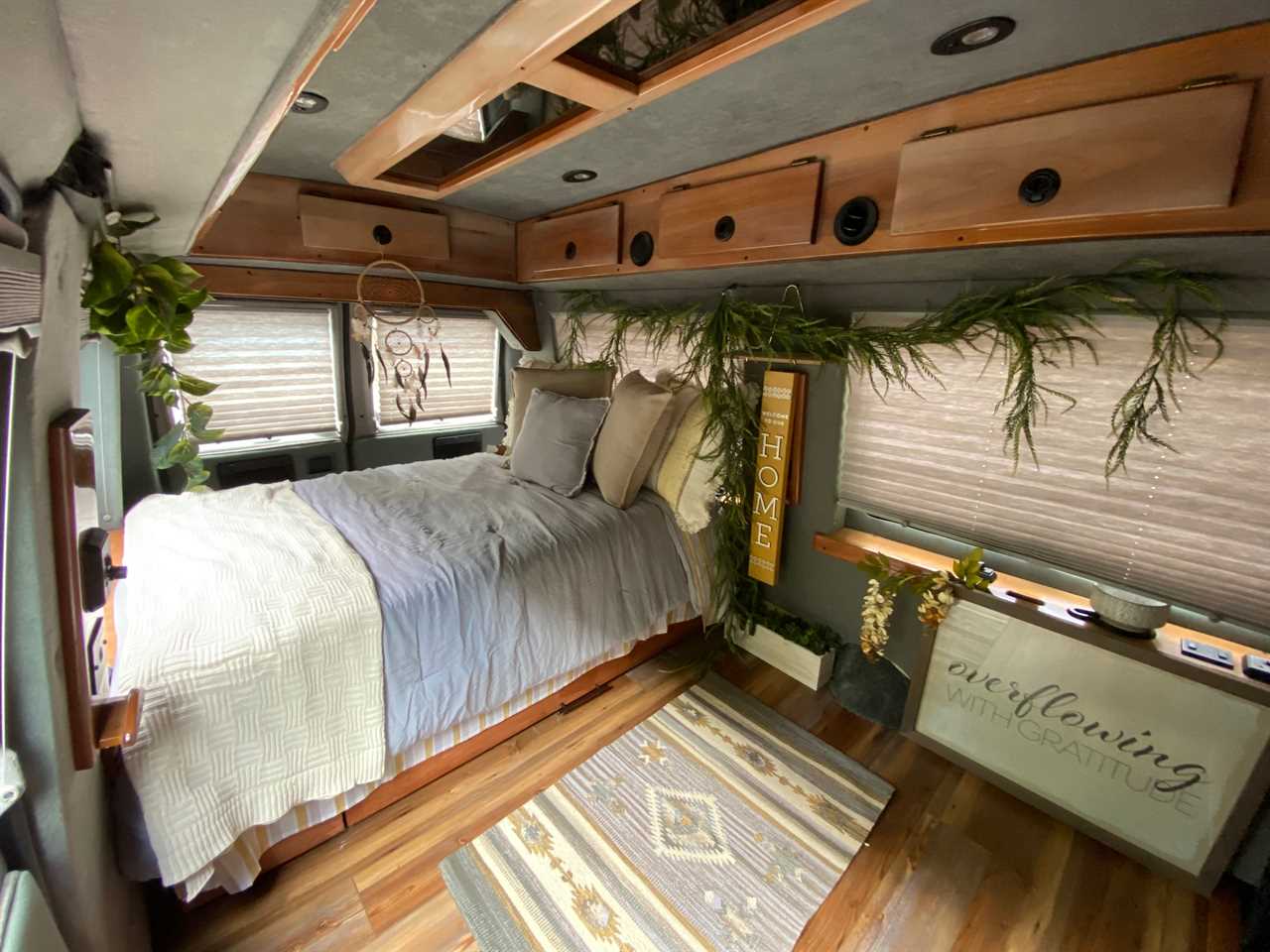
Courtesy of @MotherNATEur.
However, I soon realized that I could go anywhere. I started parking down the street, then parking a little bit further, and eventually parking in different residential neighborhoods.
I have a car, too. Whenever I want to use it, I'll drive my van near the car and park nearby. For safety, I try to not let strangers see me get out of the van and hop into the car, and vice versa. I would not say parking somewhere new each night is like playing Russian roulette, but sometimes I wonder if I am going to survive the night, or whether or not my car will get broken into.
I've never experienced a moment where I'm like, "I don't know if I want to drive through this town or through this area."
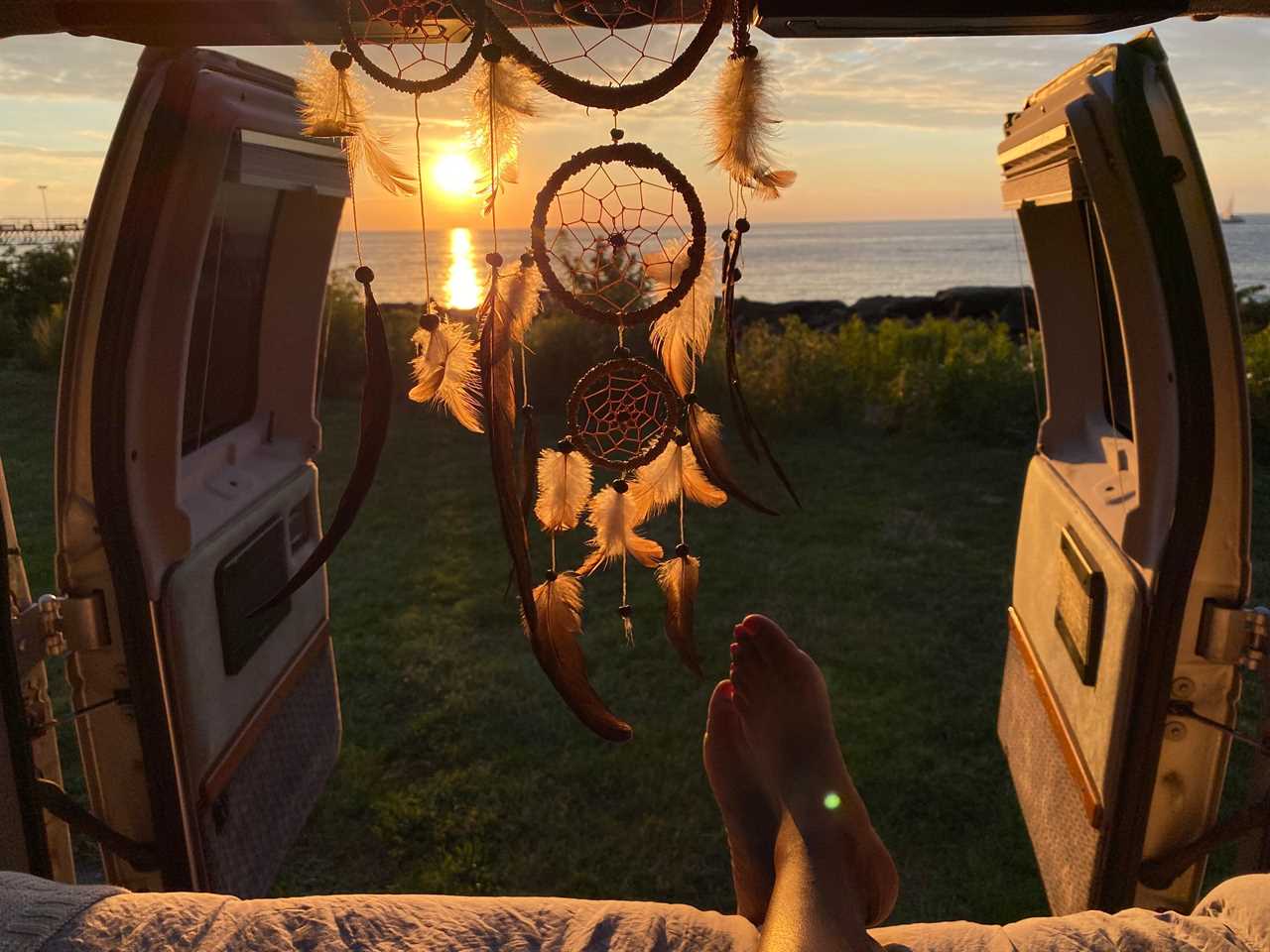
Courtesy of @MotherNATEur.
I just don't have any space for fear or regret. I've learned that I am very resilient, resourceful, and strong. To find my happiness, I'm willing to do whatever needs to be done — even if it is difficult or requires me to get out of my comfort zone.
It sounds ridiculous, but it's kind of fun for me.
I found other van-lifers in California
This year, I won't do any full-time traveling until mid-summer. However, I did my first solo cross-country trip when I drove to Los Angeles in March. Within the first 10 minutes of hitting the road, I asked myself, "Am I really going to do this?"
I was getting emotional, but decided to just go for it. I am glad I did.
I met so many people, ate at different restaurants, and experienced many new things. I also learned that van life is very popular in the West.
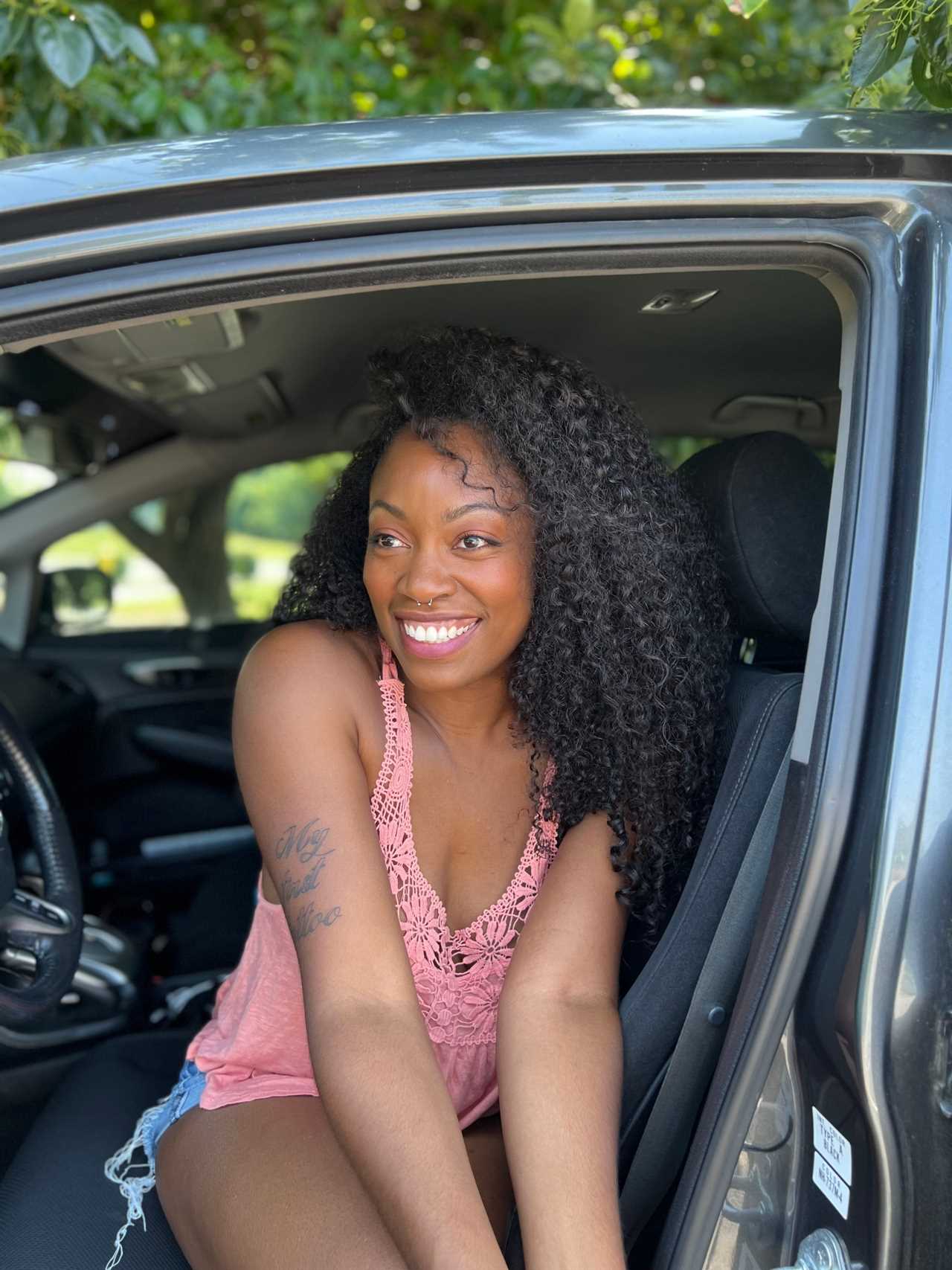
@MotherNATEur
I knew that I wasn't the only van-lifer, but I had not seen many in real life. To see so many in California was amazing.
I didn't feel like such an oddball. It truly felt like I found my people.
I still have bills, which can add up
People have this misconception that I have no responsibilities because I live in my car.
That is not true. I still spend money paying for my storage unit, insurance and phone bills, as well as a gym membership — which is where I shower or get ready when I am going out.
I also eat out more than I did when I lived in my apartment. When I was there, I would cook every night. Now I'm spending more money on food when I eat out at restaurants.
That being said, I'm making more money now than I did before the pandemic. I would say that in the three years I have lived in my van, I have saved anywhere between $70,000 to $80,000.
I'm never going back to traditional housing
When I first got into van life, I didn't research how to make it work. I just did it.
Even today, I wake up and go with the flow. It may not work out for everyone else, but it has worked out for me.
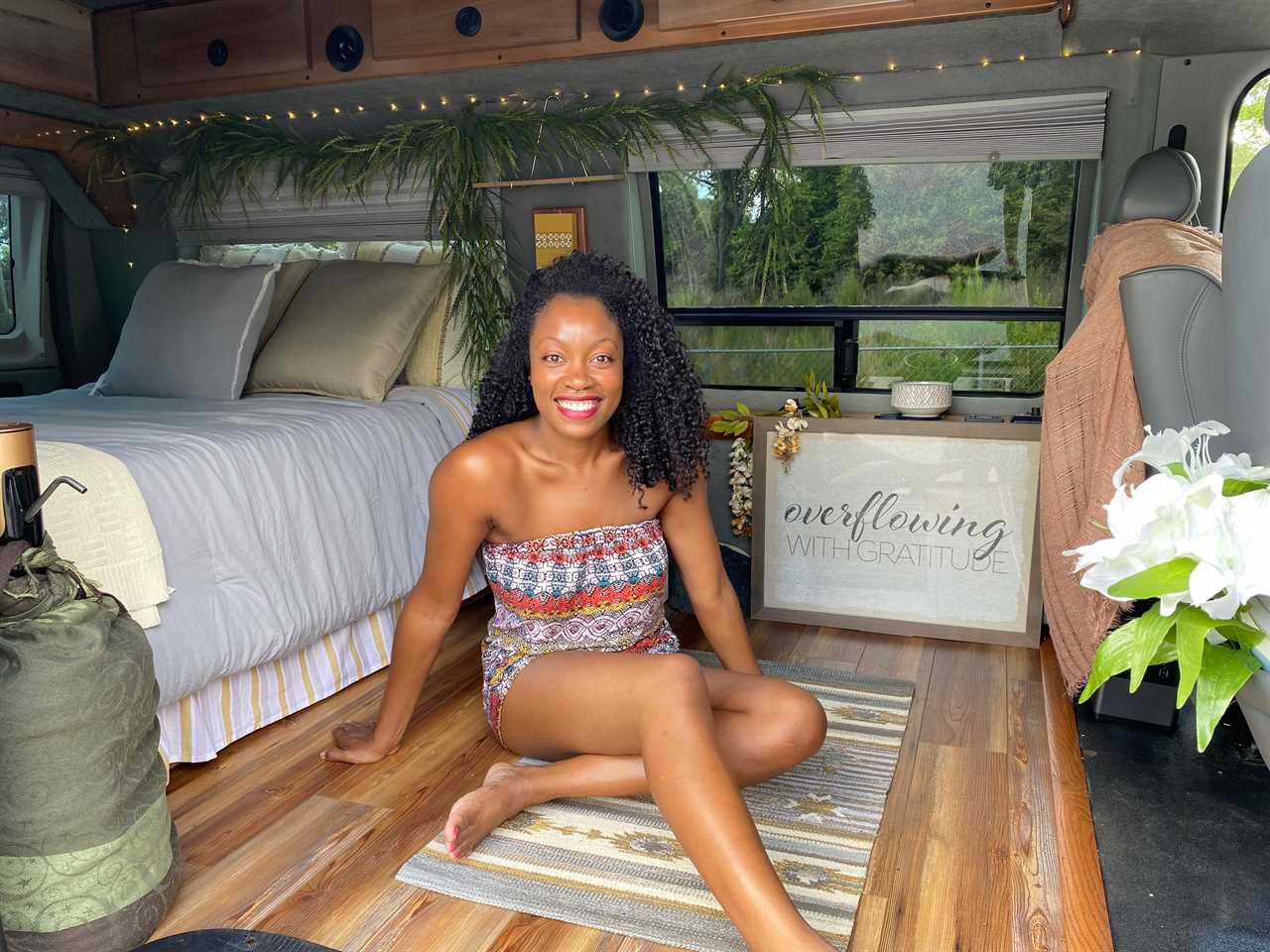
Courtesy of @MotherNATEur.
As for the future, I recently purchased some land, but do not intend to build a home there. Instead, I hope to build an elevated platform that is similar to a treehouse but without a roof. It is going to be a space for me to garden some veggies and fruits, camp, and enjoy nature.
I will eventually invite friends to visit and hope to someday rent it out to other campers.
I plan to live in my van for the long term. I initially did not know this type of life was possible, but now I can never see myself living in traditional, stationary housing.
Read More
By: [email protected] (Alcynna Lloyd)
Title: I left a high-rise apartment to live in a van. It's not that much cheaper, but I've saved $70,000 over 3 years and won't ever go back to a traditional home.
Sourced From: www.businessinsider.com/pro-and-cons-of-van-life-2023-4
Published Date: Sun, 23 Apr 2023 09:15:00 +0000
.png)




